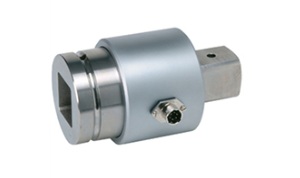How to Find the Best Pressure Transducer for Industrial Applications
When it comes to industrial applications, having the right tools, parts and processes is necessary for a well-functioning, high-quality product or service. If one piece is installed incorrectly or isn’t working properly, it can mean a failed product and possibly danger to anyone involved. When it comes to using pressure transducers, the same applies.
Over the years, these products have grown in quality and accuracy. They can now work in the harshest environments and they have more uses than ever, including in HVAC, construction and automotive applications.
Pressure transducers are used to measure a certain amount of pressure. In all pressure transducers, the measurement of pressure is achieved by the pressure physically deforming the diaphragm, which is converted into an electrical reading. These are used to measure, monitor and adjust the pressure in any given system.
But with so many types of pressure transducers out there, it may be difficult to choose the right one for you. Here are the questions to ask to help determine the best pressure transducer for you.
How Is It Being Used?
This is an important step because pressure transducers come in all shapes and sizes, and their uses can vary drastically. Some common applications include:
- HVAC
- Semiconductors
- Engine testing and control
- Calibration of equipment
- Room pressure monitoring
Your application will point you in the right direction for choosing the best-suited pressure transducer.
What Type of Elements Are Involved?
Some transducers can only withstand certain fluids. Also, the transducer must be compatible with elements in the system for an accurate reading of pressure. Here are some common elements faced by pressure transducers:
- Motor oil
- Refrigerants
- Saltwater
- Hydraulic fluids
- Seawater
- Jet fuel
Depending on the type of fluids used, you might have to take extra steps to ensure the proper functionality and safety of the equipment.
What Pressure Range Do You Need?
Some models only produce low-pressure readings, so anything above that mark might break your equipment, which will leave you with an expensive and frustrating mess.
First, ask yourself what is the highest possible pressure reading that you might experience. From there, you can determine what transducer will give you the most accurate readings without damaging the equipment.
How's the Environment?
Another factor to consider is the environment. How’s the temperature? Where does the equipment have to fit? Is it a hazardous environment? Will it be submerged under water?
Temperature is one of the most important factors to consider. If you’re dealing with unusual temperatures, contact the manufacturer to see if the transducer can handle the elements.
What Accuracy and Performance Do You Require?
The type of pressure you're dealing with and the factors discussed above will affect the accuracy and performance of your pressure transducer. With so many different models out there with varying performance and accuracy options, we recommend deciding what special features you need before making your decision.
Need more help deciding? Contact the Aztec Bolting team.





